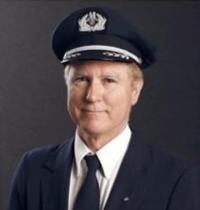All Agree Standards Should Be The Same For Pax, Cargo
Flights
The airline industry is expressing universal praise for the
adoption of new crew rest rules by the FAA Wednesday, but also is
unified in its stance that pilots of cargo flights should fall
under the same rules as those with passengers aboard.

Southwest Airlines Pilots' Association President, Capt. Steve
Chase, said, "While the pilots of Southwest Airlines are the most
productive in the industry, we recognize the need for an update to
rules that have been in place for the past 50 years. However,
SWAPA has made it clear throughout this process that we would only
offer our support to a ruling that promotes the 'One Level of
Safety' that the FAA originally mandated."
Most of the current rules have been in effect prior to
1960. The increased capability of aircraft since that time
has vastly changed pilots' working dynamic and environment.
The ruling includes an exemption for cargo carriers, such as UPS
and FedEx, which would allow companies to force their pilots to
continue to operate under the previous and outdated
regulations. These are the same regulations that triggered
the FAA's mandate of "One Level of Safety."
"Cargo pilots are no less susceptible to fatigue than passenger
pilots," Capt. Chase said. "Our crew members and the passengers
they carry operate in the same airspace as cargo operators.
Bystanders on the ground are no less affected by an accident if an
aircraft is carrying boxes rather than people. It is our hope
that lawmakers will reconsider the cargo carrier exemption and
ensure that legislation meets the original intent of 'One Level of
Safety.'"

“At first glance, it appears that some of the new flight-
and duty-time rules represent a step forward in fatigue mitigation
for commercial pilots,” said APA President Captain Dave Bates
(pictured). “For example, we are encouraged by the provision
for increased rest for pilots from the current eight-hour minimum
rest period to 10 hours, which should help provide pilots with an
opportunity to sleep a sufficient number of hours before
flying.
“However, we strongly object to exempting cargo carriers
from the new rules. A fatigued pilot is a fatigued pilot, whether
their aircraft contains passengers or cargo,” he said.
“Passenger and cargo carriers both operate high-performance
jet aircraft in the same congested airspace.
“Safety is paramount in commercial aviation. When somebody
makes a mistake in our industry, it can have serious
consequences,” Bates said. “And when crewmembers are
fatigued, they’re more likely to make mistakes.
“We therefore urge the FAA to reconsider the wisdom of a
cargo carrier exemption.”
"Giving air cargo carriers the choice to opt-in to new pilot
rest rules makes as much sense as allowing truckers to 'opt-out' of
drunk driving laws," said Captain Robert Travis, President of the
Independent Pilots Association, which represents UPS pilots.

"To potentially allow fatigued cargo pilots to share the same
skies with properly rested passenger pilots creates an unnecessary
threat to public safety. We can do better. Congress directed the
FAA to create new science-based flight and duty rules to establish
one level of aviation safety to protect the public. Today, under
intense pressure from the cargo industry lobby, the FAA has failed
to carry out this basic congressional mandate. At the same time we
work to reverse the 'opt-in' provision we will ask UPS to
voluntarily operate under these new science-based safety rules. UPS
is a premier company and our expectation is that UPS will honor
their longstanding pledge to operate the world's safest
airline."
On Thursday, IPA filed a Petition for Review in the U.S. Court
of Appeals for the D.C. Circuit in order to challenge FAA?s
exclusion of cargo operations from the final flight and duty time
rule. In its filing, IPA says it seeks to have cargo operations
included in the scope of the rule because of the important safety
benefits provided by the rule. IPA does not seek to delay
implementation of these important safety benefits to passenger
operations.
The document says that the "FAA generally acknowledges that
“factors that lead to fatigue are universal” and that
night-time operations (during pilots' circadian lows) and
operations that cross multiple time zones warrant stricter measures
to guard against fatigue. Cargo operations such as those conducted
by UPS, involve these two fatigue-exacerbating factors to a greater
extent than passenger operations, yet cargo operations will remain
subject to the current rules that FAA says are inadequate to guard
against pilot fatigue."
 ANN's Daily Aero-Linx (04.13.24)
ANN's Daily Aero-Linx (04.13.24) ANN's Daily Aero-Term (04.13.24): Beyond Visual Line Of Sight (BVLOS)
ANN's Daily Aero-Term (04.13.24): Beyond Visual Line Of Sight (BVLOS) Airborne 04.09.24: SnF24!, Piper-DeltaHawk!, Fisher Update, Junkers
Airborne 04.09.24: SnF24!, Piper-DeltaHawk!, Fisher Update, Junkers Aero-News: Quote of the Day (04.14.24)
Aero-News: Quote of the Day (04.14.24) ANN's Daily Aero-Term (04.14.24): Maximum Authorized Altitude
ANN's Daily Aero-Term (04.14.24): Maximum Authorized Altitude





